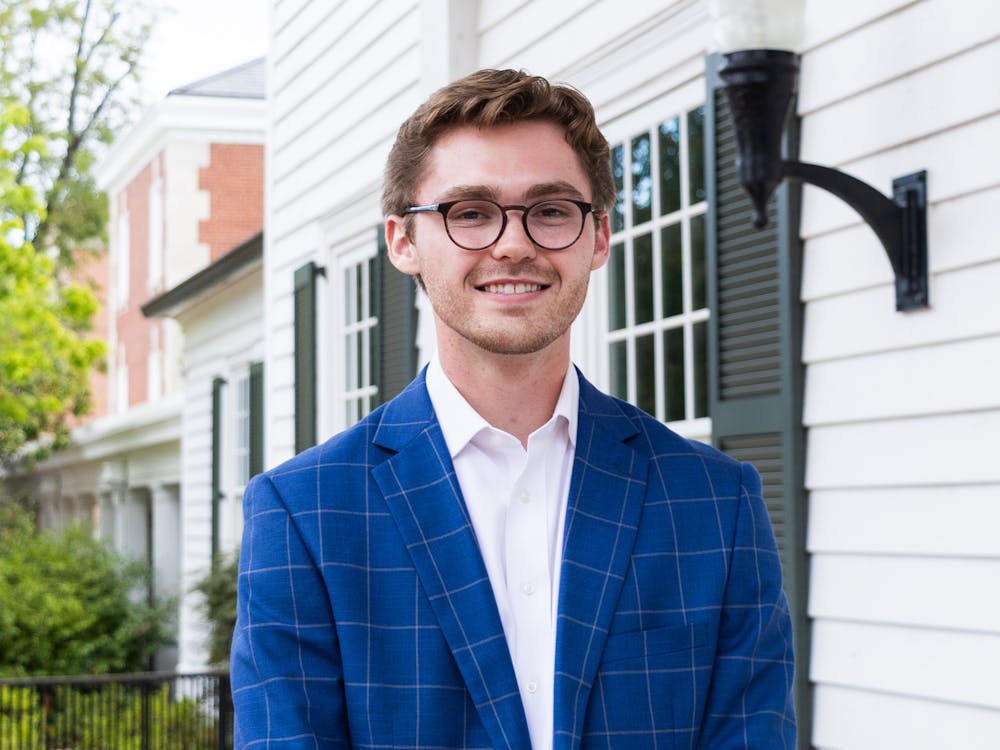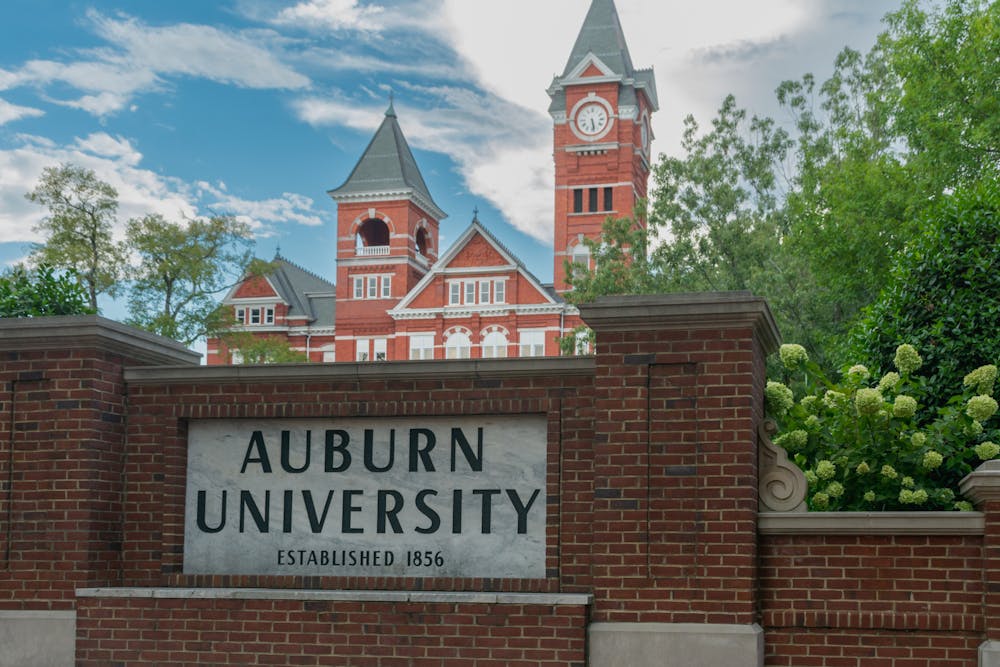On Oct. 7, Hamas – a terrorist organization dedicated to dismantling the nation of Israel at all costs – launched an attack against Israel, reportedly launching over 5,000 rockets from the Gaza Strip.
In total, over 1,000 Israeli civilians were killed in the attacks and hundreds were taken hostage, tortured and mutilated by Hamas. This act prompted a reaction from the Israeli Defense Force, and the ensuing war has taken the lives of many civilians in both Israel and Gaza.
The initial attacks against Israel saw the largest number of Jewish people killed in a single day since the Holocaust. Some of the casualties in Israel actually survived the torture and systemic extermination of Jews during the Holocaust nearly 80 years ago.
These attacks prompted responses from both pro-Israel and pro-Palestine factions across the world. However, some members of the Auburn community who are Jewish or have ties to Israel expressed concern over some of the pro-Palestinian protests, which they feared sometimes erred on the side of supporting the acts of terror committed by Hamas rather than showing support for a nation.
Auburn University’s Jewish student group Hillel estimated that approximately 125 Jewish undergraduate and graduate students attend the university, several of which have family in Israel. In light of the attacks, several members of Hillel and others with Jewish roots and ties to Israel have come forward to share their thoughts, feelings and hopes for the future of Israel and Palestine.
Bruce Pearl
Bruce Pearl is a well-known name at Auburn University, but what some people may not know about Pearl is that he is Jewish, and in his personal time and capacity, he expresses his support for Jewish people internationally and for the nation of Israel. Pearl noted that all views expressed by him in this article are his own.
Pearl said he was not shocked by the Hamas attacks. He said Israel’s enemies had made it well known for some time that they wanted to see Israel demolished.
“[Israel’s enemies] say they want her destruction from the [Jordan] River to the [Mediterranean] Sea. They want the Jews dead in Israel, and they want all the land,” Pearl said. “I’ve taken their word for it.”
Pearl said he was surprised at how Hamas militants penetrated Israel’s border and was “horrified by the genocide.” He also said that these attacks exposed a “worldwide problem” with antisemitism, and he specifically cited pro-Palestinian protests the across the world that occurred just days after the attacks.
“What breaks [Israelis’] hearts are days after people saw the murders, women being raped, babies having their heads cut off, [people] burned alive and tortured, we had protests in New York, Los Angeles, on college campuses and even among Congressional leaders [that took] the side of terrorists and murderers,” Pearl said. “That just breaks Israel’s heart.”
He compared the actions and tactics of Hamas to those of Adolf Hitler and the Nazi Party in 1930s and 1940s Germany and said that, as Hitler did, Hamas has left no option for the Jewish people and Israel but to eradicate the terrorist organization.
Pearl said that the purpose of Hamas – as they have stated over the years – was to exterminate and annihilate Jewish people and that these attacks should have made it clear for the world to see Hamas’ hateful endgame.
“What choice does Israel have but to not just defend herself, but to eliminate murderers that, if they don’t eliminate them, they will just come back and do it again?” Pearl asked.
Looking forward, Pearl hoped to see not only Hamas defeated and eliminated but also Lebanese terrorist organization Hezbollah defeated if they involve themselves and the Iranian government exposed for their funding of terrorism in the region.
Pearl also hoped the Arabs throughout the Middle East would look to the peace and success that Israeli-based Arabs enjoy and seek to live in harmony with others in the region as they do.
Liana Shapiro
Liana Shapiro, junior in economics and president of Hillel at Auburn University, is Jewish and has family in Israel. When she woke to the news of the Hamas attacks, she was “extremely sad” and feared for her family in the region.
Two of Shapiro’s cousins previously served in the IDF and were called back to serve when this war broke out. She said she feared for their safety and dreaded the possibility of hearing of an attack on their reserve.
In the aftermath of the attack, Shapiro believed it really exposed the antisemitism that is still lurking in the world and that Jewish people could face backlash and violence as a result.
“There’s been evidence that there have been more attacks on Jews because of this,” Shapiro said. “[There] have been more protests against Jews – not even against the state of Israel, against Jewish people. In Sydney, Australia, you have people chanting publicly and loudly ‘Gas the Jews.’ That puts Jews at risk when people feel they’re allowed to do that openly and freely, and many people think like this.”
Shapiro said protests in the U.S. in favor of Palestine gave her an indescribable feeling. Like Blondheim, she said the Israel-Palestine conflict was completely different from these terrorist attacks and that people posing these attacks as an act of resistance were simply being hateful.
“Raping babies and beheading them and raping women – that is not an act of resistance for Palestine,” Shapiro said. “You can be as pro-Palestine as it gets, you can be from Palestine, you can love Palestine, but that is not an act of resistance for a country that you love.”
Shapiro emphasized that this war was not Israel versus Palestine; it is Israel versus Hamas. She noted that Hamas has put innocent Palestinians at risk.
“Israel is willing to help Palestinian civilians and wants to help the Palestinian civilians if Hamas gives back hostages from all over the world,” Shapiro said. “Hamas does not want to do that. Hamas does not want to protect the Palestinian people.”
Regarding misinformation about the war, Shapiro said it was intentional. She cited videos of dolls being paraded around as real, injured Palestinian children that have been circulating on social media among other false narratives being spread daily.
“It’s really terrifying, but [the misinformation] is intentional,” Shapiro said. “It’s Jew-hatred, and this is purposeful…We know there is a reason for [this misinformation], and it’s because people hate Jewish people, and we don’t know why.”
Shapiro expressed her desire for the Auburn community to be educated on this subject. She said knowing the facts about Hamas, Palestine and Israel is crucial to understanding the situation and urged people to avoid spreading misinformation about the war.
“Our duty to the Israeli people and to Jewish people around the world and to democracy is to go in and destroy the terrorists,” Shapiro said. “That is the goal: to destroy the terrorists; to destroy all the terrorist infrastructure that they have built up for years in Palestine instead of allocating that to their own citizens. That’s what I hope to see going forward: annihilate the terrorists, and that’s all we can do."
Lior Berman
Lior Berman, graduate student and Auburn University Men’s Basketball guard, is Jewish and has family in Israel. He said on the morning of Oct. 7, he went through his typical morning routine before hearing the news of the Hamas attacks.
“I got on social media and saw these attacks on Israel, and for me, it was very scary because I have family there – my grandparents live there, my cousins live there, my aunt and uncle [live there],” Berman said. “The first thing I thought of was them.”
Berman called his parents to speak with them about the news and to check on his family. After speaking with his parents, he learned that his family was OK in the midst of what was brewing up to be a brutal war.
“I feel like [Jewish people] are always at risk,” Berman said. “Whether there are attacks or not, there is always some danger being Jewish. But a lot of us aren’t scared. I wear my religion proudly on my chest, and I love being Jewish.”
Noah Blondheim
Noah Blondheim is a junior in mechanical engineering who is working off-campus. Blondheim is Jewish, a former Air Force mechanic and went to Israel on Birthright – a free heritage trip to Israel for Jewish people aged 18- to 26-years-old to strengthen their relationship to their culture – in January. Blondheim is also on the executive board for Alpha Epsilon Pi, a Jewish fraternity.
Blondheim said he felt dread upon hearing the news of Hamas’ attack against Israel because he “knew it wasn’t going to get better any time soon.”
“The attack itself was horrible,” Blondheim said. “Hamas knew what they were doing; they had planned it for a while. I felt dread because of the people that died and knew it wasn’t going to get any better, and a lot of other people were going to die.”
He said he felt deeply for the civilians trapped in between two militaries, noting the high militaristic capabilities of IDF and the unbreakable morale of Hamas, being two forces that would not back down.
“The civilians trapped in between everything are the worst part of this whole conflict,” Blondheim said. “The humanitarian crisis ramps up every day.”
Blondheim said seeing people choose to show their support for Palestine in wake of the Hamas attacks left him with mixed feelings. He understood the Palestinian cause and that those protesters had a right to express any belief they desired, however, he felt it was in bad taste given that Hamas went outside the scope of targeting military forces and instead attacked innocent civilians.
“[Hamas] killed civilians; they took prisoners of any age; they killed people who were incredibly old and anybody as young as infants,” Blondheim said. “They took prisoners as young as infants and as old as an elderly Holocaust survivor and dragged him across the border with his wheelchair. That is straight up unacceptable.”
While the Jewish community in Auburn may seem small, Blondheim said it was important that the community stand behind Jewish people in this time.
“I feel the Auburn community should care about what’s going on in Israel because it affects more than just you – it affects the people around us; it affects the people there, who, as I said, are going through a humanitarian crisis; it affects your friends, maybe they’re Jewish [or] Muslim, maybe they support the Palestinian cause or the Israeli cause,” Blondheim said.
Blondheim encouraged people to educate themselves on the conflict and draw their own conclusions, as long as those conclusions do not advocate for harming others for their beliefs and heritage.
“Form an opinion. Listen openly to both sides,” Blondheim said. “If you want to support me, please do. If you don’t support me, just please don’t hate me for fighting for my holy land.”
The Auburn Plainsman has reached out to several university offices and student organizations in search of Palestinian students in Auburn for their thoughts but have received either no response or responses denying any knowledge of Palestinian students at Auburn. This story will be updated if or when we receive responses.
Do you like this story? The Plainsman doesn't accept money from tuition or student fees, and we don't charge a subscription fee. But you can donate to support The Plainsman.

Tucker Massey, senior in journalism, is the content editor for The Auburn Plainsman.





